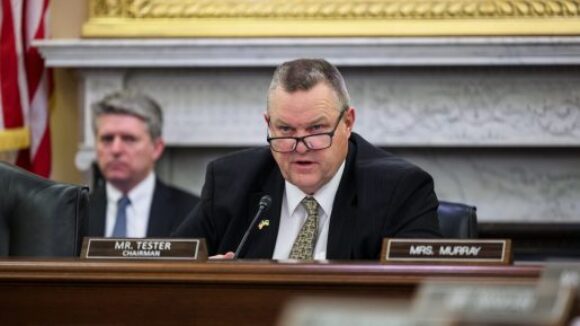‘People Have a Right to Make Their Own Choice’
Avelo employee Kim Howard believes all the firm’s flight attendants should get to vote on continued AFA rule. Credit: WTNH-TV (ABC,…

(Robert Chanin, NEA General Counsel)
Supreme Court’s Harris v. Quinn Ruling Expected in June
You could say former National Education Association (NEA) Union General Counsel and Lobbyist Robert Chanin’s words are at the heart of the National Right to Work Legal Defense Foundation’s case Harris v. Quinn. Foundation clients in the Harris v. Quinn case charge, among other things, that the state of Illinois is forcing them to pay for Service Employees International Union’s (SEIU) politics. Their argument is essentially that all monies that they are forced to give to SEIU is inherently political because SEIU must lobby a political entity to change the conditions of ’employment.’
In fact, it was SEIU’s lobbying and millions of dollars in financial contributions to one governor, now serving time in jail, the current governor of Illinois and multiple state senate and house members including state Sen. Barrack Obama that forced these plaintiffs into their unjust circumstances.
Justice would have to blind to not see the political connection. Let’s hope that the Supreme Court Justices are not.
Supreme Court heard Harris v. Quinn on January 21, 2014
Listen to the Supreme Court Oral Arguments in Harris v. Quinn:
With the help of National Right to Work Legal Defense Foundation staff attorneys, Pam Harris and seven other Illinois care providers are challenging a forced-unionism scheme enacted by Illinois Governors Rod Blagojevich and Pat Quinn on the grounds that it violates their rights to free expression and association by forcing them to subsidize union lobbying.
The case is a class-action lawsuit filed by the providers after Quinn signed an executive order designating 4,500 individuals who offer in-home care to disabled persons as “public employees,” thus rendering them vulnerable to unwanted union organizing. However, the scheme only designates providers as public employees for the purposes of unionization, leaving the homecare recipients as the employers for all other aspects of the providers’ work.
As a result of Quinn’s order, Service Employees International Union (SEIU) and American Federation of State, County, and Municipal Employees (AFSCME) bosses have been competing to acquire monopoly bargaining control over this newly-created class of public employees.
Quinn’s executive order mirrored one issued by disgraced former Governor Blagojevich, which designated over 20,000 personal care providers as state workers solely for the purpose of forcing them into union ranks. (Blagojevich’s order eventually became a law.) Quinn then expanded Blagojevich’s directive to cover an additional 4,500 providers who were not included in the original order.
In a 2010 mail-in vote, those homecare providers emphatically rejected unionization by a two-to-one margin. But because of Quinn’s executive order, they’ll continue to face unionization drives until they capitulate. The personal care providers covered by Blagojevich’s executive order have already been forced to pay union fees to the SEIU. (Click to go to the NRTW Legal Defense Foundation page for more…)

Avelo employee Kim Howard believes all the firm’s flight attendants should get to vote on continued AFA rule. Credit: WTNH-TV (ABC,…

California’s Big Labor-concocted A.B.5, signed into law by Gov. Gavin Newsom in 2019, made it almost impossible for workers and firms to bounce back after 2020’s COVID-19 lockdowns. Now Biden bureaucrats want to federalize A.B.5!

Thanks to the Committee's election-year program, union-label candidates like Sen. Jon Tester (Mont.) are being given a choice: pledge to change course and support Right to Work going forward, or face the potential political consequences.